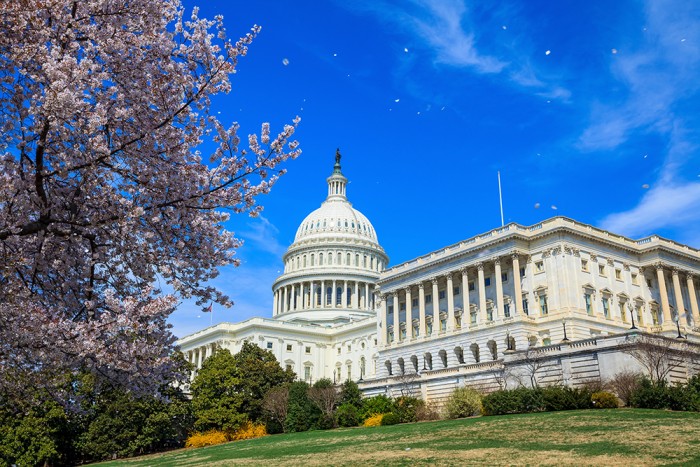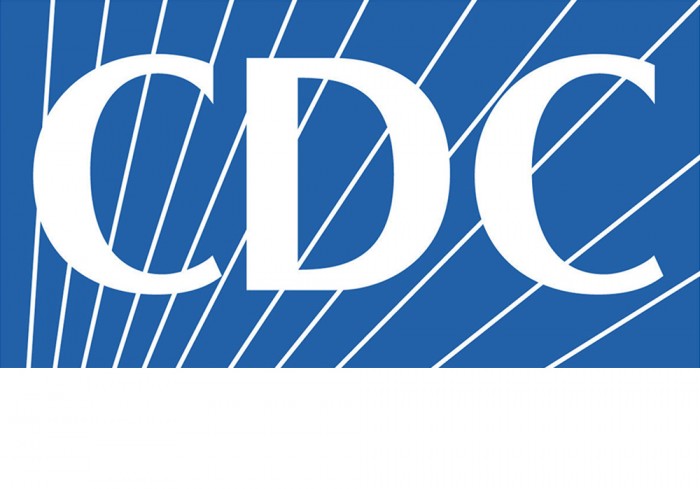CMS Releases FAQs on Medicare Provider Enrollment Relief
The Centers for Medicare and Medicaid Services (CMS) has released Frequently Asked Questions (FAQs) on Medicare Provider Enrollment Relief related to COVID-19. Also included are toll-free hotlines available to provide enrollment information and answer questions related to COVID-19 enrollment requirements.
For a complete and updated list of CMS actions, guidance, and other information in response to COVID-19, members should visit the Current Emergencies website.
OCYF Q&A from DH/Stakeholders Forum March 17, 2020
The information below is an excerpt from the questions that were submitted during the stakeholder and legislator webinars held on Tuesday, March 17.
As a reminder, the departments of Health and Human Services continue to update websites with new information and guidance for both stakeholders and the public. Those resources are below:
- Pennsylvania Department of Human Services
- Pennsylvania Department of Health
RCPA has an open channel with OCYF that can assist in facilitating answers to ongoing questions nd concerns; please continue to forward that information to RCPA Children’s Division Director Jim Sharp.
Q & A
Office of Children, Youth, and Families (OCYF) Questions:
Can congregate care programs that have school programs continue those programs?
Congregate care programs should contact the Pennsylvania Department of Education for guidance on school programs.
RCPA Response: These programs fall into the PDE directive and we recommend for school closure until PDE is directed to resume school operations across PA.
Are there any changes to/interruption to the Kinship Care navigation support line?
The Kinship Navigator hotline continues to operate as normal and can be reached at 866-KIN-2111.
Can OCYF waive the requirement for face-to-face check-ins with children in foster care and allow this to happen via video conferencing, or would that require a federal statutory change/address in the national emergency order?
The Federal Children’s Bureau released guidance to states permitting use of video or teleconferencing methods for completing the required 30-days caseworker visits for children in foster care. This guidance from the federal government along with the Governor’s emergency disaster declaration will allow OCYF to suspend state regulatory requirements for the check-in to be face to face. Video conferencing is still expected to occur within the normal timelines. OCYF has communicated this guidance to county children and youth agencies and providers.
Young people must meet eligibility requirements related to participation in activities like school and work to remain eligible for extended foster care. Since many of these activities are being disrupted significantly or canceled, are DHS and OCYF willing to direct county child welfare agencies to: 1) waive eligibility requirements during this time period and 2) prohibit agencies from discharging any youth from extended foster care during this time period to ensure their safety and well-being?
While the eligibility requirements for older youth to remain in extended foster care are set forth in statute, OCYF supports broad interpretation of the requirements at this time to allow for these older youth to remain in care. For example, one eligibility option is that a youth be “enrolled” in a postsecondary or vocational education program, which means even if college or vocational classes are suspended, a youth could still be eligible for extended foster care as long as they remain enrolled. It should also be noted that the final determination that the child meets necessary eligibility criteria is made by the court, not the children and youth agency.
Is there a plan for if young children who need to enter foster care have COVID-19 and there is not a foster home willing to accept them or all available foster parents are high risk based on age/health conditions?
OCYF is working with county children and youth agencies and providers to explore contingency models in anticipation that this could become an issue; however, it is not something that has been brought to the attention of OCYF as a problem agencies are experiencing at this time.
Residential Providers are having trouble hiring new employees because of the closure of federal fingerprinting centers due to COVID-19. How is DHS handling this closure?
This affects numerous fields, so DHS is closely monitoring this issue alongside the Governor’s Office. We will issue guidance if necessary.
RCPA April Newsletter Cancelled
To our valued members,
In order to respect the current situation we are all dealing with, and the extreme demands on your time and energy, RCPA will not be releasing an April monthly newsletter. As the information that concerns us all the most is changing on a daily basis, we will continue to keep you all informed of any developments via our Daily Update email blasts and other critical Alerts. Thank you all for your dedication in these uncertain times.
DHS Issues COVID-19 Stakeholder Update
The Department of Human Services (DHS) has issued an updated stakeholder message regarding their actions in response to the COVID-19 crisis. Included in this message are updates to: 1135 Waiver, Appendix K Waiver, Residential Treatment Facility Visitation guidance, licensing, and Electronic Visit Verification (EVV). DHS also continues to work on updating a Frequently Asked Questions (FAQs) document, which is expected to be shared very soon. Members are encouraged to frequently check the DHS website for the most up-to-date information.
In addition, Secretary Miller will host a call for stakeholders on Wednesday, March 25, 2020 at 4:00 pm. Registration information for this call will be shared on March 23, 2020.
OCR Issues Guidance on Telehealth Remote Communications
OCR Issues Guidance on Telehealth Remote Communications Following Its Notification of Enforcement Discretion
March 20, 2020
On March 20, 2020, the Office for Civil Rights (OCR) at the U.S Department of Health and Human Services (HHS) issued guidance on telehealth remote communications following its Notification of Enforcement Discretion during the COVID-19 nationwide public health emergency.
The Notification, issued earlier this week, announced that effective immediately, OCR is exercising its enforcement discretion to not impose penalties for HIPAA violations against health care providers in connection with their good faith provision of telehealth using communication technologies during the COVID-19 nationwide public health emergency.
The new guidance is in the form of frequently asked questions (FAQs) and clarifies how OCR is applying the Notification to support the good faith provision of telehealth. Some of the FAQs include:
- What covered entities are included and excluded under the Notification?
- Which parts of the HIPAA Rules are included in the Notification?
- Does the Notification apply to violations of 42 CFR Part 2, the HHS regulation that protects the confidentiality of substance use disorder patient records?
- When does the Notification expire?
- Where can health care providers conduct telehealth?
- What is a “non-public facing” remote communication product?
“We are empowering medical providers to serve patients wherever they are during this national public health emergency,” said Roger Severino, OCR Director. “We are especially concerned about reaching those most at risk, including older persons and persons with disabilities,” Severino added.
- The FAQs on telehealth remote communications may be found here.
- The press release on telehealth remote communications may be found here.
- The Notification of Enforcement Discretion on telehealth remote communications may be found here.
For more information on HIPAA and COVID-19, see OCR’s February 2020 Bulletin, use this link.
OMHSAS Reissuance of Telehealth Guidance
A MESSAGE FROM OMHSAS: We are pleased to provide an update on the status of the expansion of behavioral health – telehealth. On March 15, 2020, OMHSAS provided guidance supporting broad use of telehealth to deliver behavioral health services in the community, including in homes. The guidance is based on the current allowable services in PA with additional flexibility that is aligned with CMS guidance. Since the expansion guidance was issued, we have received over 1400 requests by providers who were provisionally approved to immediately initiate the expanded use of telehealth. We are encouraged by these numbers and expect the expansion is being implemented consistently across all behavioral health networks according to the provided guidance.
We recognize these are unprecedented times as we come together to jointly address the COVID-19 crisis. More than ever, it is incumbent upon each local community to continue to provide the necessary behavioral health supports and services to ensure individuals receive the services they need and in the delivery format that is necessary during this crisis. During these times innovation is critical, such as expanding the use of telehealth, delivering services in the home, and allowing staff to work from home. It is also critical to ensure sufficient office and clinic hours are available to meet the needs of new patients and established patients who either do not choose or cannot use telehealth or receive services in their homes. As such, there should be a balance of service delivery modalities based on safety and the needs of individuals receiving services, staff providing services and overall community needs.
It is the expectation of the Department that all providers will be approved to render services as clinically appropriate through telehealth as described within the guidance based on individual needs. Please take note of the below guidance that is being restated to reinforce the direction for the delivery of behavioral health services to support our behavioral health community needs related to telehealth during the emergency disaster declaration.
- Telehealth will allow the use of telephonic video technology commonly available on smart phones and other electronic devices. In addition, telephone only services may be utilized in situations where video technology is not available.
- The practitioner types that can provide services through telehealth will not be limited to psychiatrists, licensed psychologists, Certified Registered Nurse Practitioners and Physician Assistants certified in mental health; Licensed Clinical Social Workers; Licensed Professional Counselors; and Licensed Marriage and Family Therapists. Other individuals providing necessary behavioral health services will be permitted to utilize telehealth for services that are within their scope of practice.
- The provider types that can bill for telehealth under MA FFS will not be restricted to Psychiatric Outpatient Clinics, Psychiatric Partial Hospitalization Programs, and Drug & Alcohol Outpatient Clinics. When completing the Attestation Form (Appendix B), the “Other” Field (section I.a.) is not limited to HealthChoices during this state of emergency. BH-MCOs may continue to allow billing for any provider type they determine appropriate.
- The services (procedure codes) that can be provided through telehealth under MA FFS will not be restricted to the procedure codes identified in Attachment A of the Bulletin OMHSAS-20-02. BH-MCOs already have the flexibility to do this.
- The provision of telehealth services in homes will not be limited to Assertive Community Treatment, Dual Diagnosis Treatment Team, or Mobile Mental Health Treatment.
- Program requirements for the number or percentage of face-to-face contacts for various behavioral health services may be met with the use of telehealth.
- Program limits on the amount of service that can be provided through telehealth are temporarily suspended.
- Telehealth is a modality for delivering services that can be used across all levels of care for both mental health and substance use services.
- Telehealth should not be the only service modality used in a community and sufficient office and clinic hours should remain available to meet the needs of new and established patients.
- Telehealth includes the ability for providers to deliver services from locations outside of the office, including the home.
RELEVANT DOCUMENTS:
- OMHSAS COVID-19 Telehealth Expansion – Final 3.15.20
- OMHSAS Telehealth Bulletin 2.20.20
- Attachment B – Telehealth Attestation UPDATED 031920
Should you have any further questions or concerns, please connect with us at this email.
COVID-19 – Tribute Video to DSPs
ANCOR partner Mark Schlater, CEO Toward Independence shared this short video, “COVID-19 – Tribute to DSPs”
Never in the history of our service delivery system have we asked so much of our DSPs.
Please share!
Contact Information for PPE-Related Questions from DOH
EAST CENTRAL (Berks, Columbia, Luzerne, Montour, Northumberland, Schuylkill, Wyoming Counties) 717-561-5250
- HAP READINESS COORD – Christopher Chamberlain – [email protected]
- EMS COORD – Chris Confalone – chrisc@easternemsorg
- PUBLIC HEALTH PREPAREDNESS COORD – Tom McGroarty – [email protected]
NORTH CENTRAL (Bradford, Clinton, Lycoming, Potter, Sullivan, Tioga, Union Counties)
717-561-5250
- HAP READINESS COORD – Christopher Chamberlain – [email protected]
- EMS COORD – Chris Confalone – [email protected]
- PUBLIC HEALTH PREPAREDNESS COORD – Catherine Polachek – [email protected]
NORTHEAST (Carbon, Lackawanna, Lehigh, Monroe, Northampton, Pike, Susquehanna, Wayne Counties) 717-561-5257
- HAP READINESS COORD – Jason Tomashunas – [email protected]
- EMS COORD – Chris Confalone – [email protected]
- PUBLIC HEALTH PREPAREDNESS COORD – Tom McGroarty – [email protected]
NORTHERN TIER (Cameron, Clarion, Clearfield, Crawford, Elk, Erie, Forest, Jefferson, McKean, Venango, Warren Counties) 717-561-5254
- HAP READINESS COORD – Matt Linse – [email protected]
- EMS COORD – Curtis Valdiserri – [email protected]
- PUBLIC HEALTH PREPAREDNESS COORD – Gary Knox – [email protected]
KEYSTONE (Adams, Bedford, Blair, Centre, Cumberland, Dauphin, Franklin, Fulton, Huntingdon, Juniata, Lancaster, Lebanon, Mifflin, Perry, Snyder, York Counties) 717-561-5255
- HAP READINESS COORD – Scott Mickalonis – [email protected]
- EMS COORD – Les Hawthorne – [email protected]
- PUBLIC HEALTH PREPAREDNESS COORD – Dennis Smith – [email protected]
SOUTHEAST (Bucks, Chester, Delaware, Montgomery, Philadelphia Counties)
717-561-5251
- HAP READINESS COORD – Brian Barth – [email protected]
- EMS COORD – Chris Confalone – [email protected]
- PUBLIC HEALTH PREPAREDNESS COORD – Bob Pisch – [email protected]
SOUTHWEST (Allegheny, Armstrong, Beaver, Butler, Cambria, Fayette, Greene, Indiana, Lawrence, Mercer, Somerset, Washington, Westmoreland Counties) 717-561-5252
- HAP READINESS COORD – Jason Brown [email protected]
- EMS COORD – Curtis Valdiserri – [email protected]
- PUBLIC HEALTH PREPAREDNESS COORD – Perry Fox [email protected]
CDC Issues New Guidance on Use of Protective Gear for Providers
The Centers for Disease Control and Prevention (CDC) issued new guidance for healthcare providers that provides information on the best ways to conserve personal protective equipment (PPE), such as gowns, facemasks, N95 respirators, and eye protection as they experience supply shortages due to the outbreak of COVID-19.















